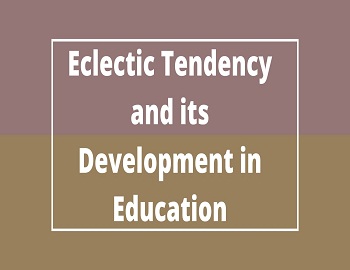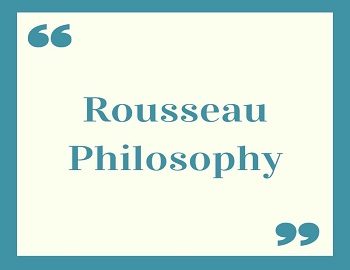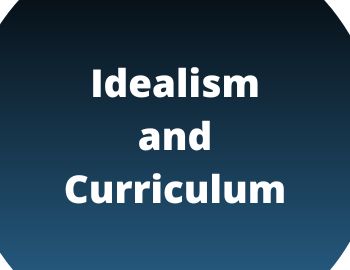Table of Contents
Gandhiji as Naturalist Idealist and Pragmatists:
Mahatma Gandhi successfully synthesized different philosophies of education and emerged as a naturalist, idealist and pragmatist. His philosophy is Indian in origin and Indian in the setting. It the result of profound thinking and the experimentation by the leader of the nation. He knew the West and understood the East. It has, therefore, the best educational philosophies of the East and the West i.e. Naturalism, of all the Idealism and Pragmatism. In the words of Dr M.S.Patel, “Gandhi’s philosophy of education is naturalistic in its setting, idealistic in its aims and pragmatic in its method and programme of work”. As a true patriot, a man of God, a practical philosopher and a man of the masses, Gandhiji stood for freedom, self-realization, spiritual development, learning by doing, education through life experiences and activities.
Gandhiji as Naturalist:
Gandhiji’s educational philosophy is naturalistic in its setting because of the following reasons-
- Child is good by nature- Like naturalists, Gandhiji believes that child is good by nature. While planning education, this fact should be properly considered.
- Freedom for the Child- Like Rousseau and other naturalists Gandhiji emphasizes freedom for the child. Children should be educated in an atmosphere of freedom. There should not be unnecessary restrictions of the time-table or the syllabus as are found in the traditional schools. Moreover, the atmosphere should be as free as possible.
- Natural Surroundings- Like Rousseau, Gandhiji says that the child should be educated in natural surroundings, away from the restricted atmosphere of our conventional society. He expects “the teachers to educate village children in their villages so as to draw out all their faculties through some selected handicrafts”.
- Child-centredness- Like naturalists Gandhiji believes in child-centredness. He was a great lover of children and to him, the harmonious development of the child was most important. Gandhiji’s education is not so craft-centred as it is child-centred.
- Against text-books- Like naturalists, Gandhiji is against all existing text-books which are based upon foreign culture. He, however, does not minimise the importance of text-books but believes that for a new pattern of education new types of books are essential.
Gandhiji as Idealist:
Gandhiji’s educational philosophy is idealistic in aims because of the following reasons-
- Perfection of Spirituality- Mahatma Gandhi emphasized the perfection of spirituality or Spiritual Realization as the main aim of life and education. Development of the inner conscience of the individual is essential for spiritual realization. Here Gandhiji is idealistic.
- Development of the Whole Child- Idealists believes in developing the inner endowments of the child (qualities given to the child by God). Gandhiji believed in developing the best in child and man-body, mind and spirit. Here he is in accord with the idealistic approach of Froebel.
- Harmonious development of personality- Like all other idealists Gandhiji believed in the harmonious development of personality. This development is possible through physical, social, religious and literary activities.
- Universal as a manifestation of Almighty- Like Froebel Gandhiji believed everything of human creation in this universe is the manifestation of the Almighty. Thus he is deeply religious and has a symbolic approach.
- Sarvodaya Samaj- Gandhiji like an idealist, believed in an ideal which does not belong to the material world. It is an ideal for which efforts have to be made to achieve it. His ideal is the establishment of Sarvodaya Samaj- a classless society, where there is no exploitation. In Sarvodaya Samaj, the individual will be able to realise his best self. He will come to have a knowledge of God or Truth. This approach of Gandhiji is idealistic.
- Idealism of high order- Gandhiji’s idealism is of a high order. He believed that the individual who pursues his ideals will have to withdraw himself from the worldly pleasures and will have to serve his fellow-men.
- Idealistic Discipline- Gandhiji emphasized ‘discipline’, regulated and well-directed life. In this emphasis, he is an idealist. He wanted to inculcate self-discipline among children. The discipline should not be imposed from without. There should be an inner urge of the individual to obey the laws and regulations prescribed by the group, community or society.
Gandhiji as Pragmatist:
Gandhiji’s educational philosophy is pragmatic in the same degree as an idealistic. Gandhiji reconciles the practical and spiritual values. It is through grappling with real situations that the child realizes himself. Like Dewey, he believed that as true which can be experimentally verified. Like Dewey, he emphasized activity curriculum. Like all pragmatists, he advocated learning by experience, learning by activity, learning through concrete life situations. Learning by experience was the chief force behind his craft-centred education. This craft-centred education is an ample testimony that Gandhiji was a pragmatist. Gandhiji’s educational philosophy is primarily pragmatic in methods of teaching because of the following reasons-
- Experimental Approach- Like other pragmatists Gandhiji believed in an experimental approach towards life. He calls his biography as “My Experiments with Truth“. He advocated two types of truth- the relative truth and the absolute truth. To him, the creation of relative truth is always subject to experimentation and modification. The absolute truth or God is final. It is the relative truth which helps in realising the absolute truth.
- Acquisition of knowledge- Like pragmatists he advocated that the child should acquire knowledge himself. This will help him to solve his future situations in later life.
- Activity and Interest-The Basic Scheme of Gandhiji and the Project Method of Pragmatists are based on the principle of activity and interest.
- Socialized Activity- The Project Method is based on some socialized activity. It means that the activity is to be in a social setting. In the same way, the basic craft is selected keeping in view the craft of the community. Hence it will be a socialized activity and will bring out a social relationship with the community as well. Through the activity, the child acquires knowledge and utilizes it for the understanding and control of his social environment. This enables the child to inculcate social responsibilities.
- Raja Ram Mohan Roy & Brahmo Samaj
- Swami Dayanand Saraswati & Arya Samaj
- Swami Vivekananda & Ramakrishna Mission
- Theosophical Society & Annie Besant
- Sir Sayyid Ahmad Khan & the Aligarh Movement
- Social Changes in Modern India– NIOS
- Quit India Movement 1942 or August Revolution
- Effects of the Revenue Settlements on the Agrarian Society









Comments (No)